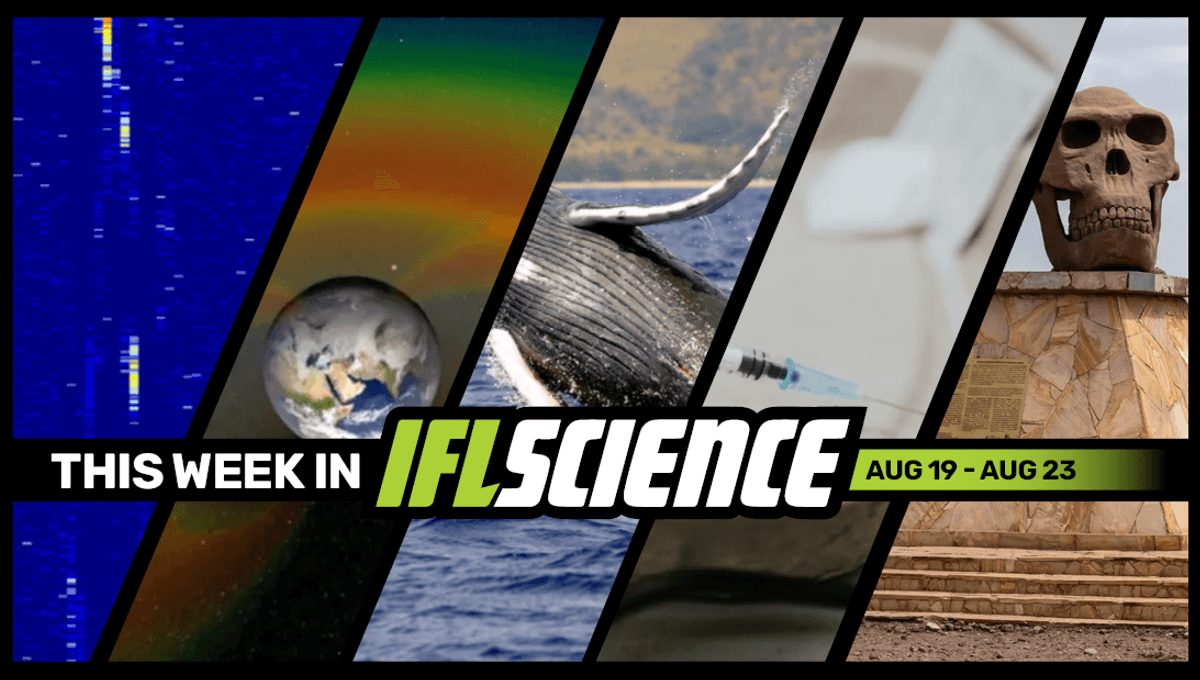
This week, the massive aurora-sparking solar storm we experienced this spring has given Earth a new ring, human trials for a universal flu vaccine may begin in 1-3 years after success in ferrets, and we investigate why the Rift Valley may not be the cradle of humankind. Finally, we explain how you use supermassive black holes daily without even knowing.
Subscribe to the IFLScience newsletter for all the biggest science news delivered straight to your inbox every Wednesday and Saturday.
Iconic Wow! Signal May Finally Have An Explanation (It’s Still Not Aliens)
Astronomers studying red dwarf stars have spotted something in the background that they think explains a signal that has been puzzling astronomers since its detection over four decades ago. Just what is the Wow! signal and has it finally been solved? Read the full story here
This Spring’s Massive Aurora-Sparking Solar Storm Has Given Earth A New Ring
Along with summoning beautiful aurora in the night sky around the world, the solar storm that rocked Earth in May this year left another legacy: a new Van Allen Belt looping around the planet. The Van Allen belts are two donut-shaped belts of radiation wrapped around Earth, composed of energetic charged particles trapped in the planet’s magnetic field. According to NASA, a temporary third belt has recently emerged around Earth as a result of the intense solar storms. Read the full story here
Humpback Whales Revealed To Be Tool Users, Catching Krill With Amazing Skill
Scientists believe that humpback whales should join the esteemed rank of tool users, along with Homo sapiens, apes, crows, and an elite group of other super-smart creatures. Unlike these other clever characters, humpbacks are particularly special because they create the tools themselves and ingeniously adapt them to suit their needs. Read the full story here
Universal Flu Vaccine Could Enter Human Trials In 1-3 Years After More Positive Results
A universal flu vaccine – one that would protect against multiple strains and could spell the end of yearly shots – is something virologists have been striving towards for a long time. Now, one candidate has moved a step closer to fruition, showing positive results in ferrets. Researchers hope to begin human trials in as little as one to three years. Read the full story here
Why The Rift Valley May Not Be The Cradle Of Humankind After All
The story of our species begins in Africa, although our ability to tell that story is based on patchy evidence that has been steadily vanishing for the past 2 million years. Much of what’s left comes from the famous East African Rift System (EARS) – often referred to as the Cradle of Humankind – although the reality is that we don’t really know what early humans were up to outside of the Rift Valley. Read the full story here
TWIS is published weekly on our Linkedin page, join us there for even more content.
Feature of the week:
This Is How You Are Using Supermassive Black Holes Every Day Without Even Knowing
For most of human history, we relied on the stars to navigate, even today we navigate using satellite information, be it in maps, traffic apps, and countless other applications from photos to banking. We still rely on celestial navigation – but the stars are not good enough. We need supermassive black holes. Read the full story here
More content:
Have you seen our e-magazine, CURIOUS? Issue 25 August 2024 is available now. This month we asked, “Do Animals Think?” – check it out for exclusive interviews, book excerpts, long reads, and more.
PLUS, season 4 of IFLScience’s The Big Questions Podcast has begun. So far we’ve asked:
Source Link: Iconic Wow! Signal May Finally Have An Explanation, Humpback Whales Revealed To Be Tool Users, And Much More This Week